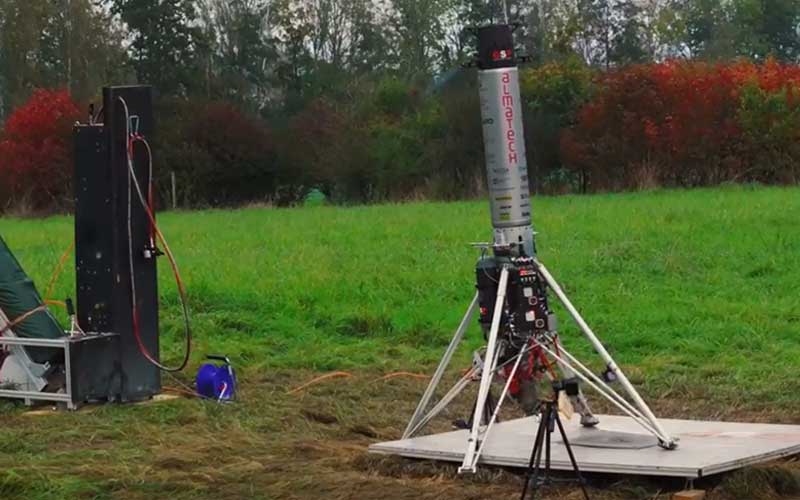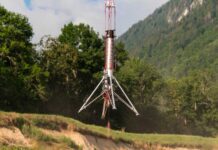
A reusable rocket demonstrator built by a group of students from the Swiss Federal Institute of Technology Lausanne in Switzerland has successfully completed a 105-metre free flight.
The Gruyère Space Program (GSP) was created in 2018 with the goal of developing a small 2.5-metre reusable rocket demonstrator called Colibri. The demonstrator is powered by the group’s in-house developed bipropellant F-100 rocket engine, which is capable of producing 1.2 kN of thrust. According to the group, it developed the demonstrator for less than 250,000 Swiss Francs (€266,000).
On Friday, 18 October, GSP announced that it had completed the final major milestone in the development of its Colibri hopper with a 105-metre free flight. During the flight, the hopper ascended to an altitude of 105 metres, moved 30 metres southeast, and then returned to the launchpad for touch down, successfully completing its mission. The flight lasted for 60 seconds.
Prior to the 105-metre hop, GSP president Jérémy Marciacq explained that the goal of the programme was to “demonstrate that students can fly a reusable rocket demonstrator before even private companies or space agencies.”
Although the goals established by GSP at the group’s inception have been achieved, the group has already spun off the technology into a startup called PAVE Space. The company will, however, not be looking to develop a full-scale reusable rocket.
Based in Renens, Switzerland, PAVE Space will initially utilize its Colibri vehicle as part of its “engineering services in mobility” offering. The company will then look to offer a space surveillance and tracking service in 2027 and geostationary satellite life extension services by 2030.


